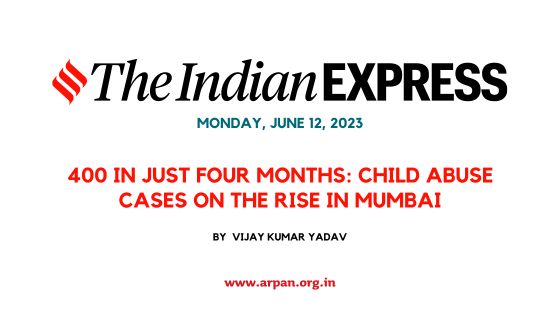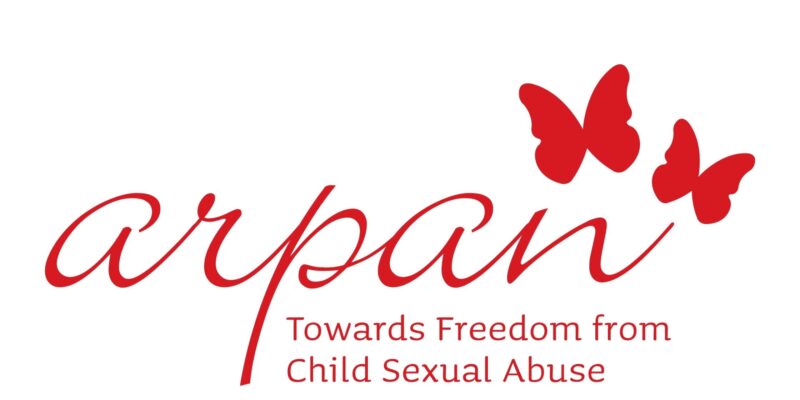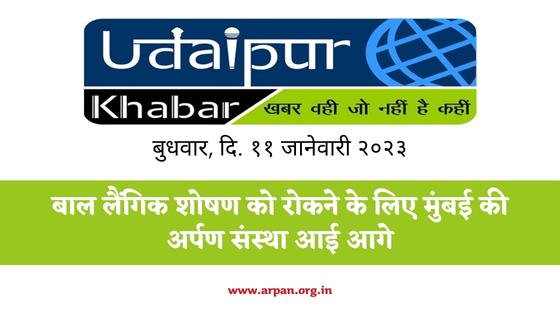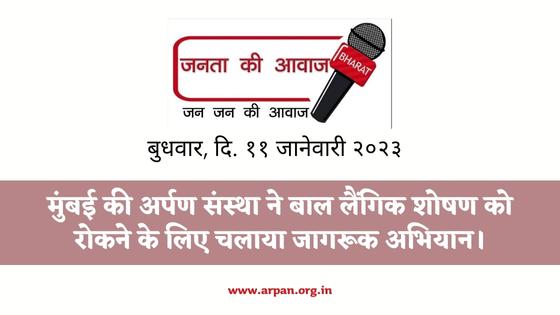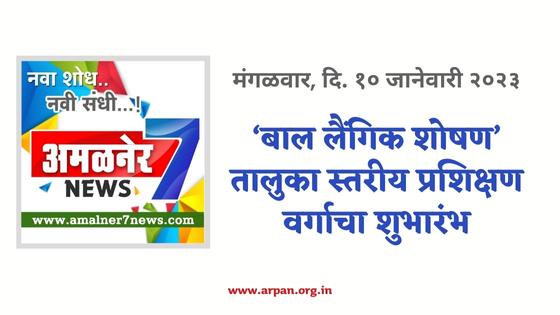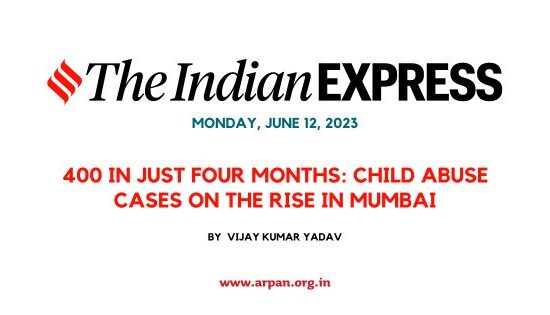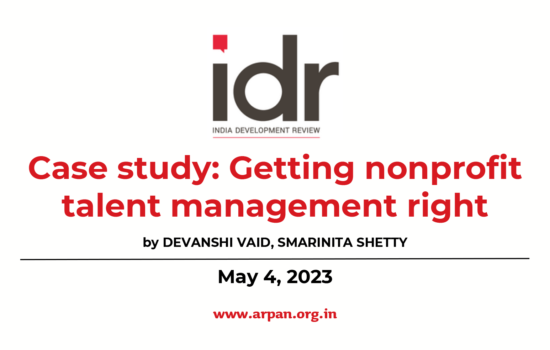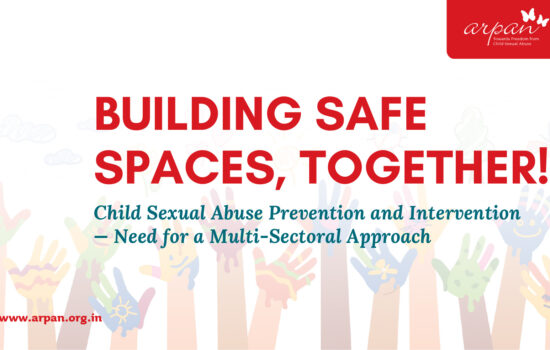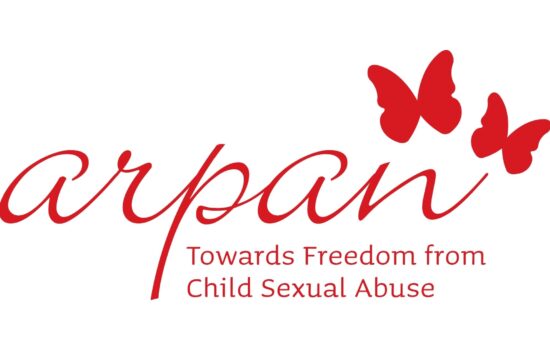One day, as you’re playing with your best friend’s son, a child you’ve known since he was a mere tadpole in your friend’s belly, you notice something’s wrong. The normally hyperactive boy is listless and withdrawn, and won’t respond when you ask him what’s wrong. When you next see him, he’s the same, but this time when no one’s around he tells you something you aren’t prepared for: a member of his family has been touching him inappropriately. You know you have to do something, but what that is is still unclear: do you betray his confidence and tell his parents? Should you attempt to make sure he has access to a counselor and therapy? Or do you pick the uneasy, but possibly necessary, option of going to the police? You ask a lawyer friend about your options and learn that, by law, you are expected to report the incident to the police or risk punitive action.
In 2012, the Indian government passed the Protection of Children from Sexual Offences (POCSO) Act – an important legal document welcomed by activists as an important step in directing social and judicial focus towards the issue of child sexual abuse. But the one clause in the Act that remains a controversial topic is that of having mandatory reporting of child abuse. As the POCSO Act is the most significant piece of jurisdiction passed in prevention of child sexual abuse, it is important to view this clause and its impact through a critical lens.
Section 19 of the Act requires that an offence under the Act – or the apprehension that an offense under the Act is likely to be committed – be reported to a Special Juvenile Police Unit or the local police. Section 21 of the Act makes the failure to report or record such a case punishable by six months imprisonment or a fine, or both. Although this does not apply to children, the responsibility falls to anyone a child may have confided in or knows that a child may have been sexually abused – whether they’re a social worker, a teacher, a neighbor, a family friend, or a neighbor.
The concept of mandatory reporting originated in the USA, and the first laws on the subject were drafted in 1963. The USA has evolved a strong and well-established culture of mandated reporting (albeit amidst controversy), and it has become an important feature in the child abuse laws of that country. In a way, mandatory reporting facilitates the early reporting of child abuse, and sends a strong message that abuse is not acceptable. However, the act of reporting is a very personal one, and the feelings of the survivor as well as the ethical dilemma of the person reporting the abuse are at its core.
I work for an organization that works towards capacity building and consciousness raising about the issue of child sexual abuse. We felt that since the primary benefactors of our work and of the POCSO Act are survivors of sexual abuse, the most important way of assessing the possible impact of mandatory reporting was to ask them how they felt about it.
Around six months ago, we set about interviewing adult survivors of child sexual abuse – having coped with the trauma of abuse as children, they were perhaps more able to make sense of the abuse and its impact in hindsight, and more able to express their feelings about it with some distance. We used an online form with a qualitative, open-ended set of questions, and called for interviews by posting on relevant discussion forums on various social media platforms. Of course it meant that this restricted the sample group to only people affluent and educated enough to access social media forums and respond to a questionnaire in English. But we felt it gave people the choice and autonomy to come forward to answer these questions, if they felt ready for it, rather than seeking out survivors for personal interviews. We took no personal details, ensuring complete anonymity, and provided our respondents with helplines if they experienced triggers or required counseling. Of our 64 participants, two identified as male and 62 as female.
The results, when they came in, were eye-opening. Twenty-four of the participants – 37.5 percent – said that they agreed that reporting sexual abuse of children should be mandatory, but the remaining 40 stated that they were uncomfortable with the idea.
Of the other findings of our survey, three trends were extremely significant. First, we found that most of the respondents of the survey were not able to disclose the abuse to anyone during the abuse or soon after the abuse. The fear of being stigmatized or experiencing a backlash was particularly strong. Most survivors took time to make sense of what had happened, to find the words to describe the event and to work up the courage to talk to someone about it. Guilt and shame were two significant obstructions to disclosure – while these were apparent in almost all of the respondents’ narratives, eight of the respondents said they were sure the abuse was their fault. Some of the respondents didn’t feel like they had access to a support system, and didn’t believe they could get help even if they asked for it. Others were in denial about what had happened, or had repressed the memories of abuse. If the abuser shared a close relationship with the respondent, or had threatened them, this played a role in their decision to talk about the abuse.
Second, the reactions received after talking about the abuse for the first time had a major impact on the survivors’ healing processes. On a personal level, children reporting abuse have to revisit the trauma and deal with the consequences of their revelations. Only 17 respondents received unambiguous, positive and supportive responses upon disclosure. Some reported that their parents hadn’t done enough to make them feel believed or safe, and others said their complaints were brushed aside. One of the respondents wrote: “I assumed they [my parents] would protect me from it. They brushed it off by explaining how I was misunderstanding what was happening, and it was nothing serious. The reaction made me feel desperate and helpless. I had no more hope from anyone else.” The responses the survivors had received after speaking about their abuse had influenced they way they felt about their abusers and themselves.
The main reason that respondents supported mandatory reporting seemed to primarily be to reclaim control by shifting the blame on to the abuser, when it had been projected on to them instead by a culture of victim-blaming. They also seemed to feel that mandatory reporting would put the onus of ensuring justice for the survivor on the responsible adult stakeholders. A vital aspect for several participants was that even if the adults they confided in did not believe the child or were dismissive of the child’s disclosure, they would have to, by law, report the abuser. They also believed that mandatory reporting would make adults primarily responsible for holding the perpetrator accountable. If children were scared to take action, adults would be forced to do it on their behalf.
But the third aspect of the findings we found noteworthy was that every single one of the respondents, even those who supported mandatory reporting, said they didn’t want the police to be the first level of intervention in cases of child sexual abuse. Most participants described their social environments as being “patriarchal”, “misogynistic” or “insensitive”, and were wary of the stigma and blame that they would have to deal with if their abuse was exposed. For some others, it was more important to move on and focus on healing themselves rather than putting their abusers behind bars.
A Human Rights Watch report titled ‘Breaking the Silence: Child Sexual Abuse in India’ published in 2013 documented cases of child sexual abuse in India in various contexts. The way the justice system functions is a key deterrent to the reporting of abuse, according to the report, which says many survivors who do report abuse are “mistreated a second time by a criminal justice system that often does not want to hear or believe their accounts or take serious action against the perpetrators.” The report also establishes that most police officers lack the skill, training and sensitivity to handle cases of sexual violence.
Interestingly, all participants in our survey stated categorically that if a child disclosed a case of ongoing or past abuse to them, they would not report the abuse without the child’s consent. Most said they would consider reporting the abuse if that was the only way to stop it, but it would be a last resort, only after other forms of help, such as including the family, contacting NGOs and talking to therapists had failed. One respondent said: “If a child reported abuse to me, my immediate instinctive response would be to look for at least one adult in its proximity a) to whom it may be comfortable talking about it b) who would have an active hand in altering the circumstances under which the child faces abuse […] I would want to report it to the police and thereby make it public only after ascertaining the child had enough of a distance and dissociation from it. If that distance isn’t possible, at the cost of the abuser probably staying at large, I wouldn’t be too easy about reporting charges. What followed would probably scar the child equally if not more than the abuse.”
This may largely have to do with perceptions: in most cases, the respondents were not speaking about dealing with the police from personal experience. It’s clear that there’s plenty of work to be done not just to sensitize police, but also to spread awareness about the training police undergo and the work they do to aid survivors. The POCSO Act does provide for child-friendly investigations, but the lack of awareness about the conditions of the Act and fear of the police system is a clear deterrent to reporting.
There’s also the legal process to worry about: the gamut of lawyers, interrogations and court appearances that can easily traumatize survivors. One of the respondents wrote about how her parents went to register a complaint upon her disclosure and how she was made to identify her abuser from amongst a number of suspects. She recalled how she was not only petrified at having to see her abuser again, but she was also dealing with extreme anxiety at the possibility of identifying the wrong person and getting him arrested.
From the narratives of our respondents, the understanding that each case of abuse takes place in its own specific context was re-affirmed. Reporting abuse cannot be made mandatory as a blanket law without taking into account these specificities. The decision to report is contextual and almost entirely based on the environment, both immediate and social, of the survivor. Our approach has to extend to a more holistic and targeted approach towards prevention and intervention – legal action is not enough. Police, doctors, teachers, parents and other responsible stakeholders, need to be sensitized. Safety education programs need to be conducted for children, and alongside the law, there has to be a greater emphasis on therapeutic intervention with survivors and their trusted adults.
Mandatory reporting of sexual abuse shouldn’t prevent survivors from seeking help, and it shouldn’t make it difficult for them to disclose their abuse to a trusted adult. In the end, it’s important to remember that the focus must be on the child and what is best for them.
Shreya Sen works as a researcher with Arpan, an NGO that works towards the prevention of child sexual abuse through training and capacity building and providing therapeutic intervention for survivors. This article is part of their research on how survivors of child sexual abuse perceive mandatory reporting.
Source : Yahoo News

